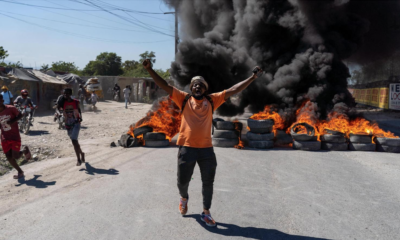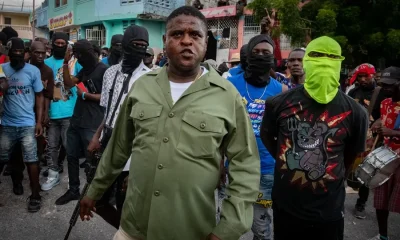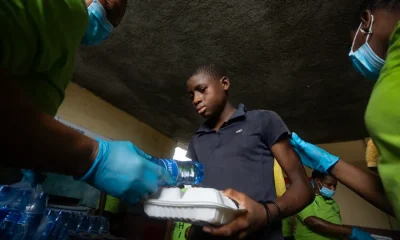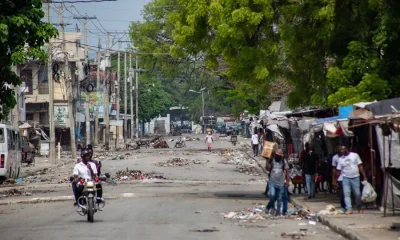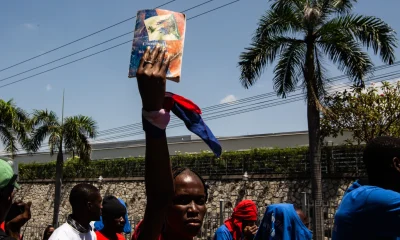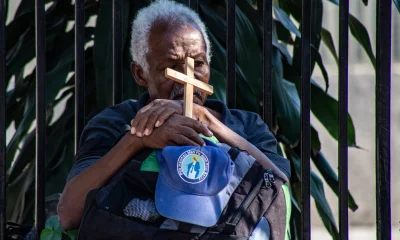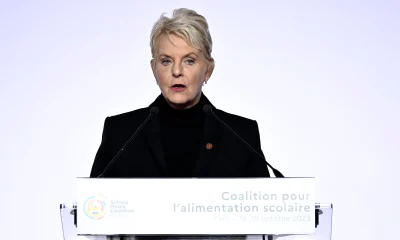International
Haiti’s new Prime Minister, Garry Conille, promises to face the serious crisis
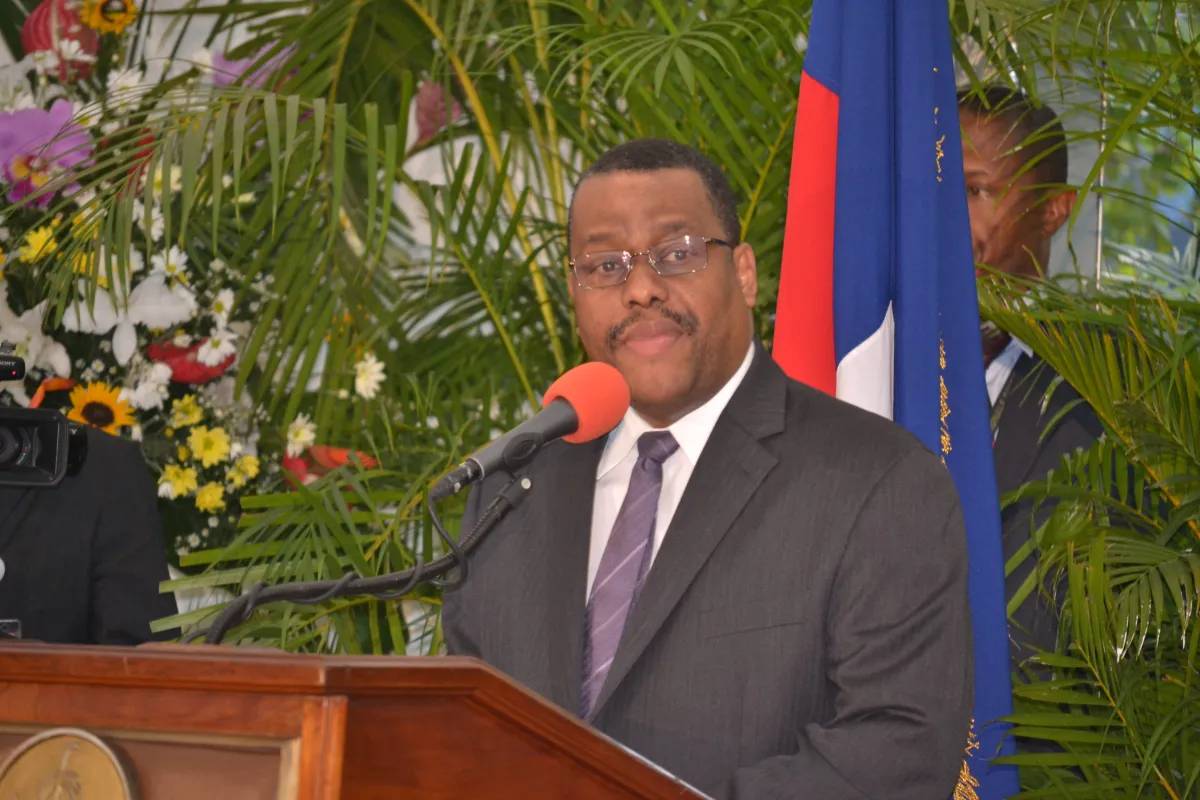
The new Prime Minister of Haiti, Garry Conille, pledged to work with the Presidential Transitional Council to solve the problems facing the country, plunged into an unprecedented socio-political crisis, as he said in a 9-minute message posted on his YouTube account.
“I am now committed to working closely with all the counselors to solve the urgent problems facing the country,” he said.
Conille assured that he is also committed to working for the success of the transition, before stressing that he has “accepted the position with great humility,” thanking the counselors and organizations that placed their trust in him.
He called his appointment a “great step forward” for Haiti, despite the crisis it is currently going through. Conille stated that, since his election by the Council, he has dialogued with the actors of the national and international community.
“The Presidential Council is already actively working to identify the profiles that will form the Government. We are going to work so that the Transitional Government reflects the courage, generosity, resilience and diversity of the Haitian people,” he said.
“The average age of the Haitian population is 23 years old. So young people must be well represented. Half of the population are women. Women must find their place in the Government,” he said.
He promised that, together with the Presidential Transitional Council, he will do everything possible to find competent people with honest practices, who love his country and are willing to sacrifice themselves to fight for it.
Conille drew a critical picture of the situation in Haiti, which is going through a difficult period. “And despite the many sacrifices of the police, armed groups occupy a large part of the metropolitan region. They kill and rape without punishment,” he lamented.
“Several hundred thousand compatriots have been forced to leave their homes, almost half of the population does not have enough food to eat every day, and it is in difficult conditions that four million students go to school,” he recalled.
“Medicines, dispensaries and hospitals are becoming luxuries. Small merchants close their doors and the cost of living increases,” he said.
“If we join, I can guarantee that we will get out of the situation we are in. I have always believed that there is no Haitian fatality,” Conille said, stating that he is sure that the country will get the final victory.
In his message he also said: “We will do everything possible to make this transition a success. And to make sure that our institutions are in place on time,” remembering that Haiti cannot lose and that the country will not lose.
The Presidential Transitional Council of Haiti, composed of seven members with voice and vote and two others with voice only, published on Thursday the decree appointing Garry Conille as prime minister in the official newspaper Le Moniteur, two days after electing him at the National Palace.
International
Winter Storm Fern Leaves 30 Dead and Over One Million Without Power Across the U.S.
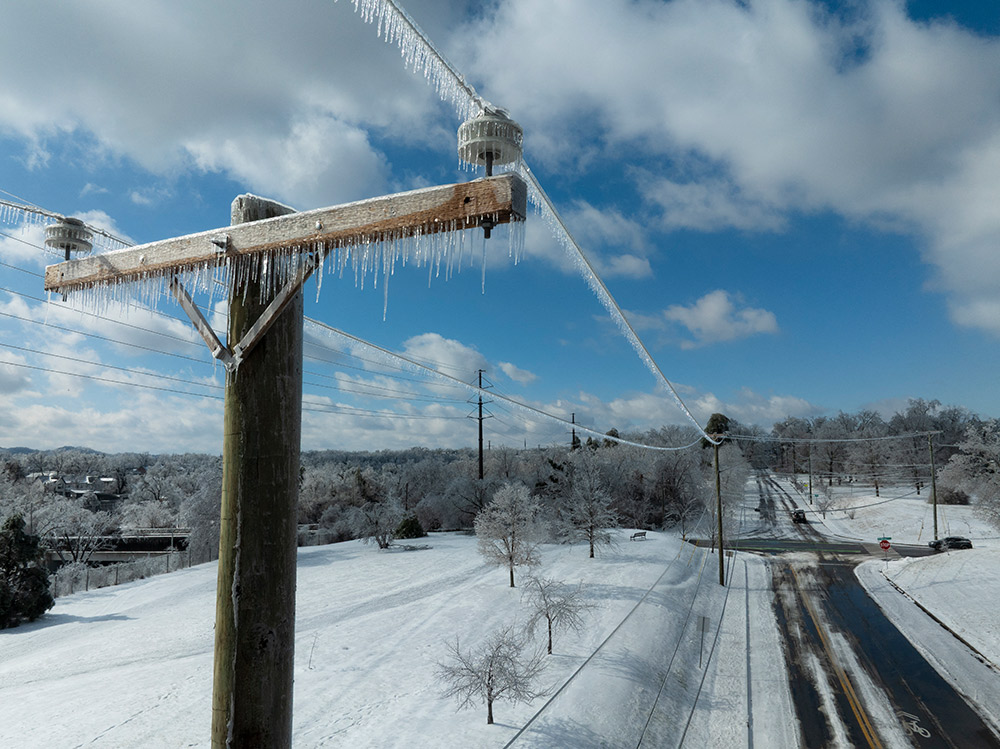
The massive winter storm Fern, bringing polar temperatures, battered large portions of the United States for a third consecutive day on Monday, leaving at least 30 people dead, more than one million households without electricity, and thousands of flights grounded.
In the Great Lakes region, residents awoke to extreme cold, with temperatures dropping below -20°C. Forecasts indicate that conditions are expected to worsen in the coming days as an Arctic air mass moves south, particularly across the northern Great Plains and other central regions, where wind chills could plunge to -45°C, temperatures capable of causing frostbite within minutes.
Across the country, heavy snowfall exceeding 30 centimeters in roughly 20 states triggered widespread power outages. According to PowerOutage.com, nearly 800,000 customers remained without electricity on Monday morning, most of them in the southern United States.
In Tennessee, where ice brought down power lines, approximately 250,000 customers were still without power. Outages also affected more than 150,000 customers in Mississippi and over 100,000 in Louisiana, as utility crews struggled to restore service amid dangerous conditions.
International
Spain approves plan to regularize up to 500,000 migrants in Historic Shift
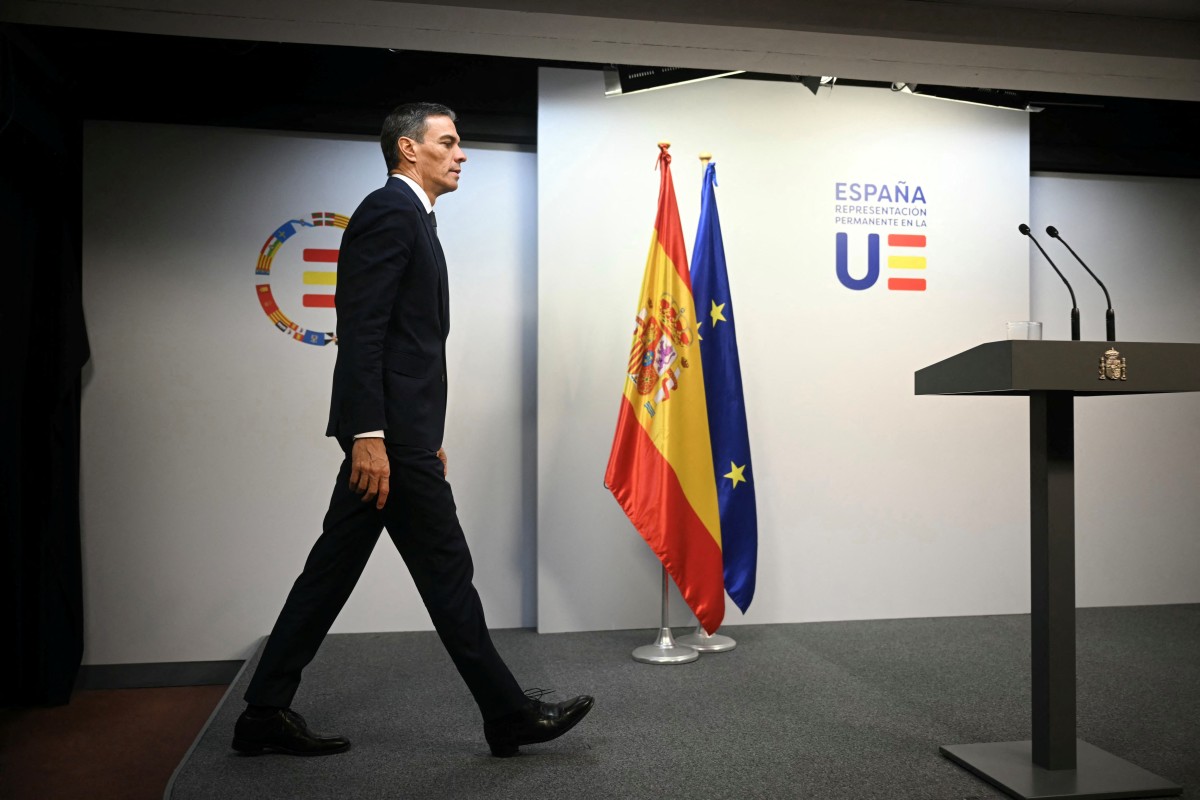
In November 2024, Spanish Prime Minister Pedro Sánchez announced a reform of the country’s immigration regulations aimed at regularizing 300,000 migrants per year over a three-year period, in an effort to counter population aging in a country where births have fallen by 25.6% since 2014, according to official data.
Going against the trend in much of Europe, Spain’s left-wing government has now approved an exceptional migrant regularization plan that could benefit up to 500,000 people, most of them from Latin America.
The measure will allow the regularization of around “half a million people” who have been living in Spain for at least five months, arrived before December 31, 2025, and have no criminal record, Migration Minister Elma Saiz explained on public television.
The plan, approved on Tuesday by the Council of Ministers, establishes that applications will be processed between April and June 30, enabling beneficiaries to work in any sector and anywhere in the country, Saiz said.
“Today is a historic day for our country. We are strengthening a migration model based on human rights, integration, and one that is compatible with economic growth and social cohesion,” the minister later stated at a press conference.
The socialist government of Pedro Sánchez stands out within the European Union for its migration policy, contrasting with the tightening of immigration measures across much of the bloc amid pressure from far-right movements.
Central America
Honduras swears in conservative president Asfura after disputed election

Conservative politician Nasry Asfura assumed the presidency of Honduras on Tuesday with an agenda closely aligned with the United States, a shift that could strain the country’s relationship with China as he seeks to confront the economic and security challenges facing the poorest and most violent nation in Central America.
Asfura’s rise to power, backed by U.S. President Donald Trump, marks the end of four years of left-wing rule and secures Trump another regional ally amid the advance of conservative governments in Chile, Bolivia, Peru, and Argentina.
The 67-year-old former mayor and construction businessman was sworn in during an austere ceremony at the National Congress, following a tightly contested election marred by opposition allegations of fraud and Trump’s threat to cut U.S. aid if his preferred candidate did not prevail.
Grateful for Washington’s support, Asfura—who is of Palestinian descent—traveled to the United States to meet with Secretary of State Marco Rubio, before visiting Israeli Prime Minister Benjamin Netanyahu.
“We need to strengthen relations with our most important trading partner,” Asfura said after being declared the winner of the November 30 election by a narrow margin, following a tense vote count that lasted just over three weeks.
-

 Central America4 days ago
Central America4 days agoGuatemala’s president rules out negotiations with inmates after prison riots
-

 International3 days ago
International3 days agoTrump-Era Defense Plan Prioritizes Border Security and Scales Back Global Commitments
-

 Internacionales4 days ago
Internacionales4 days agoMajor winter storm threatens “catastrophic” ice and snow across much of the U.S.
-

 Central America1 day ago
Central America1 day agoGuatemala seizes over a ton of cocaine hidden in flour at Pacific port
-

 International3 days ago
International3 days agoBogotá and Quito Seek Dialogue After Tariffs and Power Cut Escalate Tensions
-

 International4 days ago
International4 days agoGuatemala considers sending high-risk gang members to military prisons
-

 International2 days ago
International2 days agoDelcy Rodríguez seeks political agreements after Maduro’s ouster
-

 International1 day ago
International1 day agoHistoric snowstorm paralyzes Toronto after 60 centimeters of snow
-

 International2 days ago
International2 days agoFederal immigration agents kill man in Minneapolis, sparking protests and outrage
-

 International4 days ago
International4 days agoRights group says over 5,000 killed in Iran protests, mostly civilians
-

 International1 day ago
International1 day agoSpain’s irregular migrant population rises to 840,000, study finds
-

 International1 day ago
International1 day agoRights group says nearly 6,000 killed in Iran protest crackdown
-

 International1 day ago
International1 day agoVenezuela frees at least 80 political prisoners, NGO says
-

 International1 day ago
International1 day agoEU launches new probe into X over AI-generated fake nude images
-

 International1 day ago
International1 day agoSevere winter storm grips U.S., leaves multiple dead as extreme cold persists
-

 International1 day ago
International1 day agoFrance debates ban on social media for children under 15
-

 International2 hours ago
International2 hours agoDoomsday clock moves to 85 seconds before midnight amid rising global risks
-

 Central America2 hours ago
Central America2 hours agoHonduras swears in conservative president Asfura after disputed election
-

 Central America2 hours ago
Central America2 hours agoGuatemala Police Arrest Prison Guard Caught in the Act of Extortion
-

 Sin categoría2 hours ago
Sin categoría2 hours agoEight Killed in Series of Armed Attacks in Ecuador’s Manabí Province
-

 Sin categoría2 hours ago
Sin categoría2 hours agoEl Salvador Launches Fourth Year of Ocean Mission to Protect Marine Ecosystems
-

 Central America2 hours ago
Central America2 hours agoBukele leads public trust rankings as UCA survey highlights gains in security
-

 International2 hours ago
International2 hours agoSpain approves plan to regularize up to 500,000 migrants in Historic Shift
-

 International2 hours ago
International2 hours agoWinter Storm Fern Leaves 30 Dead and Over One Million Without Power Across the U.S.

























